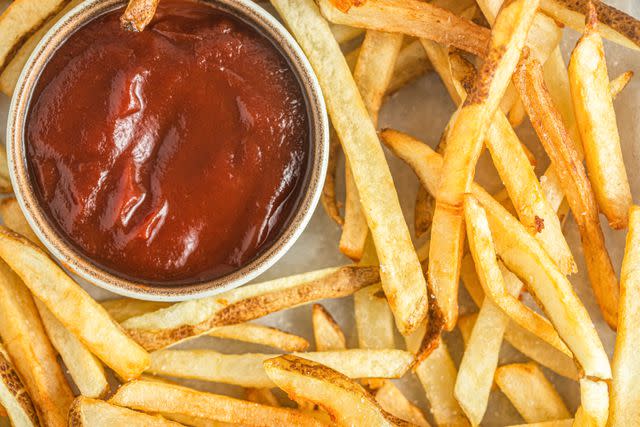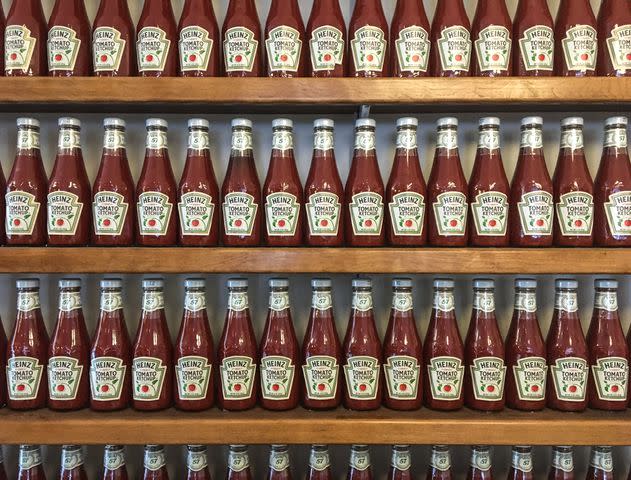This Is Where You Should Be Storing Your Ketchup, According to Heinz
Not sure if you should store ketchup in the fridge or in the pantry? Learn the best way to store the beloved condiment.
When it comes to refrigeration, some foods—like milk, meat, and delicate leafy greens—are obviously team fridge. But what about the bottles and bottles of sauces and condiments, like ketchup? What needs the cold environment of the refrigerator, and what’s safe to store in the pantry?

Simply Recipes / Karishma Pradhan
One condiment that’s always at the forefront of the debate is ketchup. Diners and restaurants often leave their bottles out at room temperature, while many home cooks stash the bottle in the fridge. Does ketchup need to be refrigerated?
The Case for Storing Ketchup in the Pantry
Ketchup is highly acidic thanks to its two main ingredients: tomatoes and vinegar. It also contains a good amount of salt and sugar, which are natural preservatives. Because of this, and the fact that ketchup is cooked, the condiment is shelf-stable according to the U.S. Department of Agriculture (USDA).
You’ve probably noticed that many diners and burger joints leave their ketchup bottles on their dining tables at room temperature. This is because ketchup is safe to store in an airtight container in the pantry… with one caveat.
The Case for Storing Ketchup in the Fridge
How often are you consuming ketchup? Do you go through a bottle in a few days? Or does it take a month or more?
Unless you’re a busy diner going through and refilling ketchup bottles every day or two, you should store your ketchup in the fridge. This is because, just like pickles, the flavor and texture declines after you open the bottle or jar and the ketchup is exposed to air.
To slow down this process way down, stash it in the fridge. This keeps your ketchup tasting salty, savory, sweet, tangy, and perfectly tomato-y. According to the USDA, ketchup can keep in the fridge for about six months after it’s open.
Read More: Trader Joe’s New Seasoning Blend Is Weird, But We Can’t Stop Sprinkling

Getty Images
The Verdict
Even Heinz weighed in on the subject a few years ago, stating that “because of its natural acidity, Heinz® Ketchup is shelf-stable. However, its stability after opening can be affected by storage conditions. We recommend that this product, like any processed food, be refrigerated after opening. Refrigeration will maintain the best product quality after opening.”
Who knows ketchup better than Heinz? Unless you’re a ketchup fiend and plan to use a whole bottle within a matter of days, we too recommend storing ketchup in the fridge.
Read the original article on Simply Recipes.

